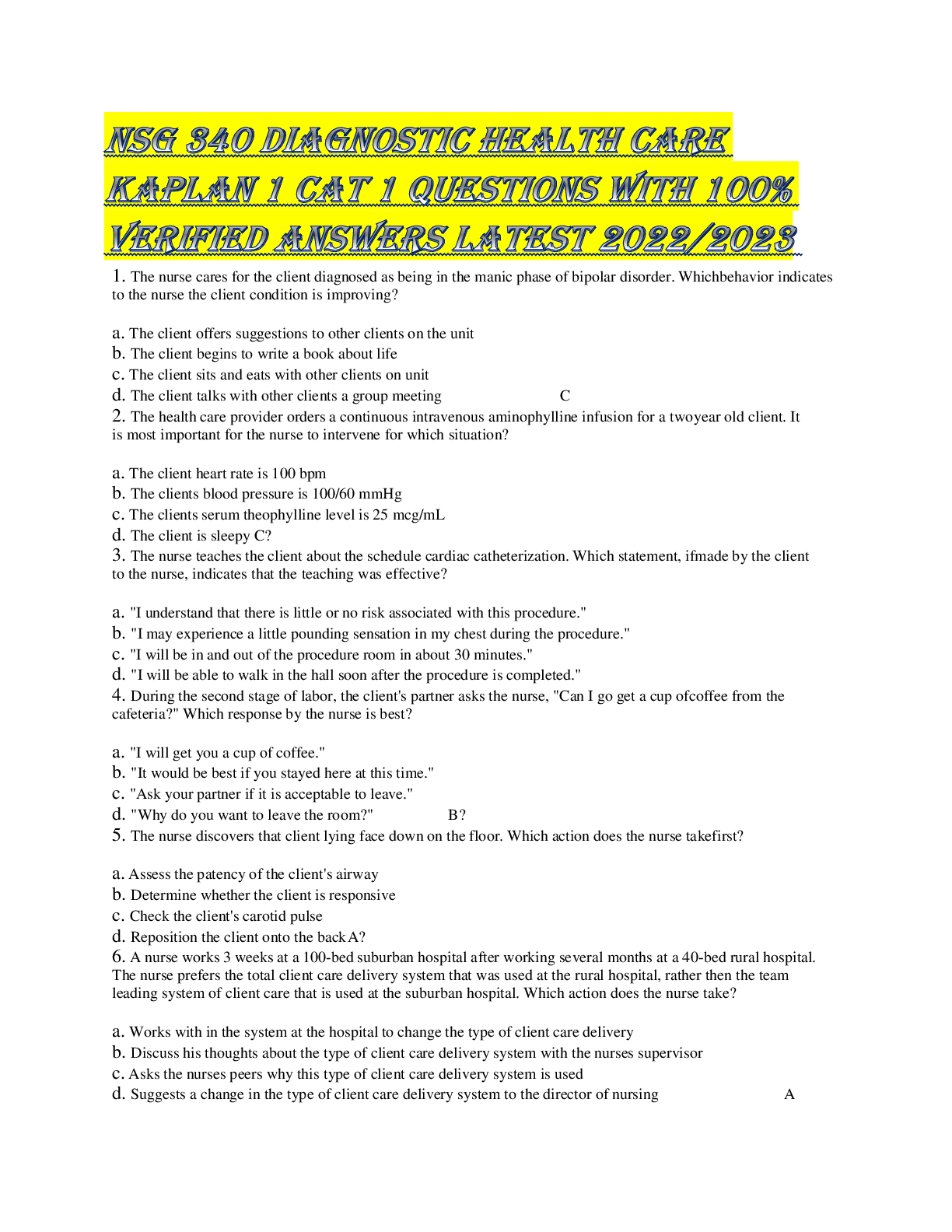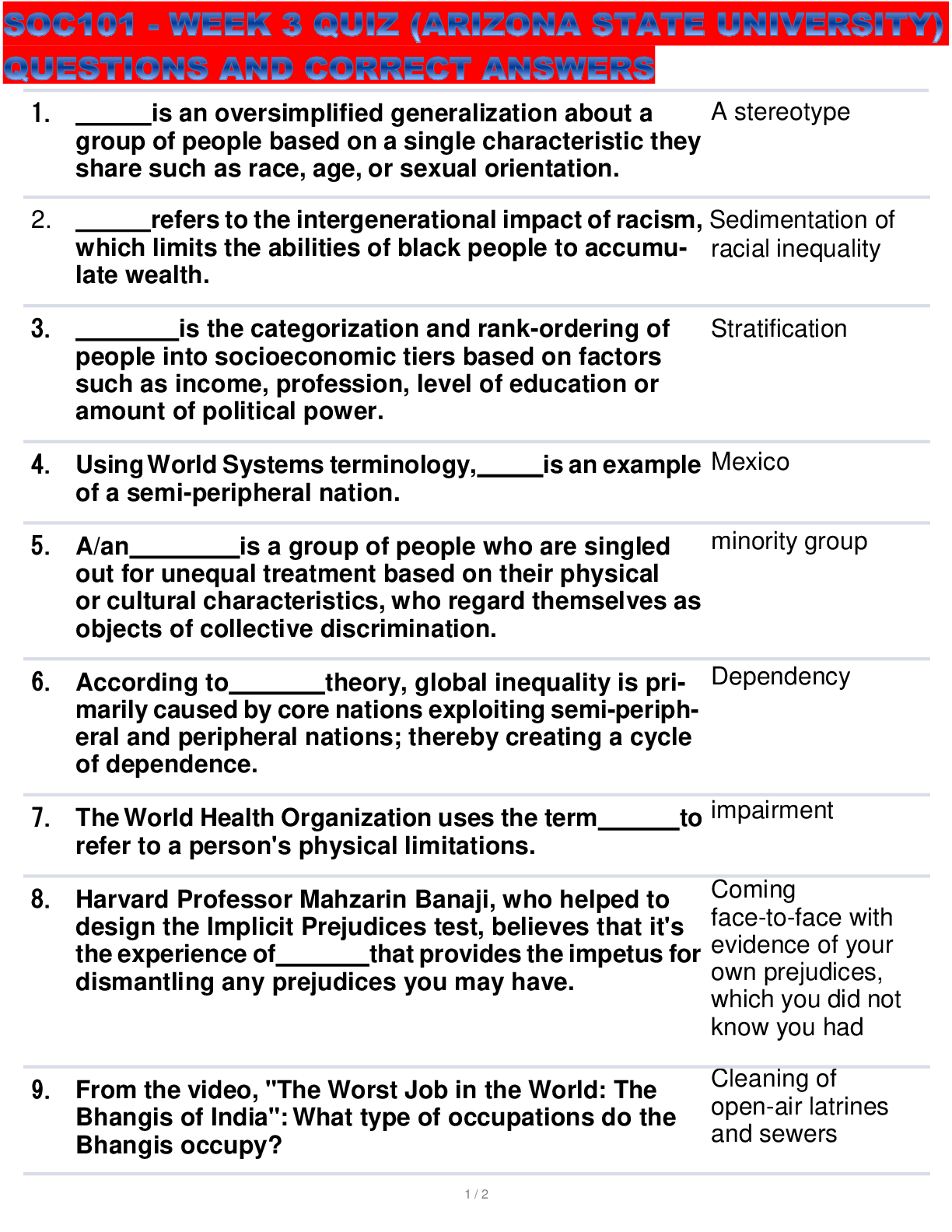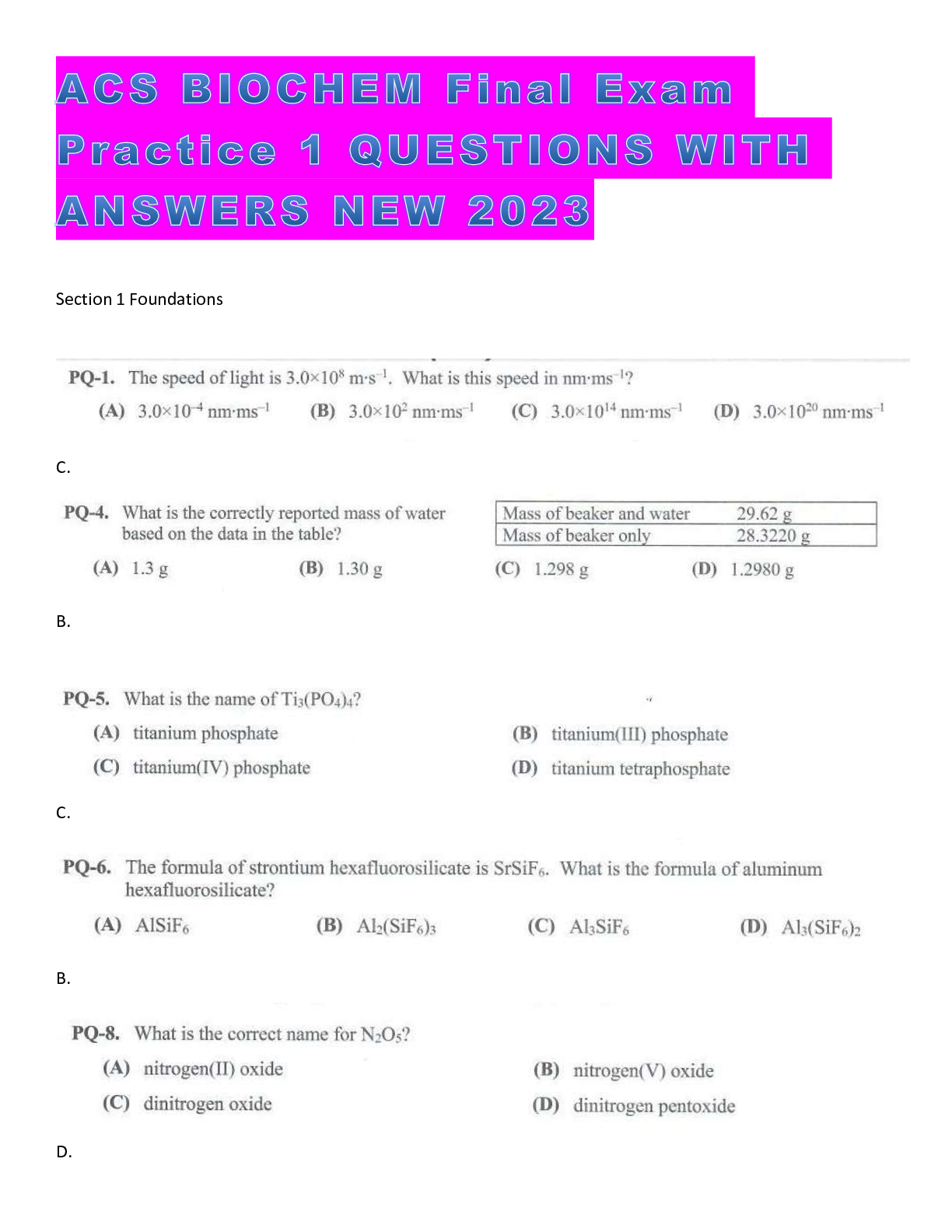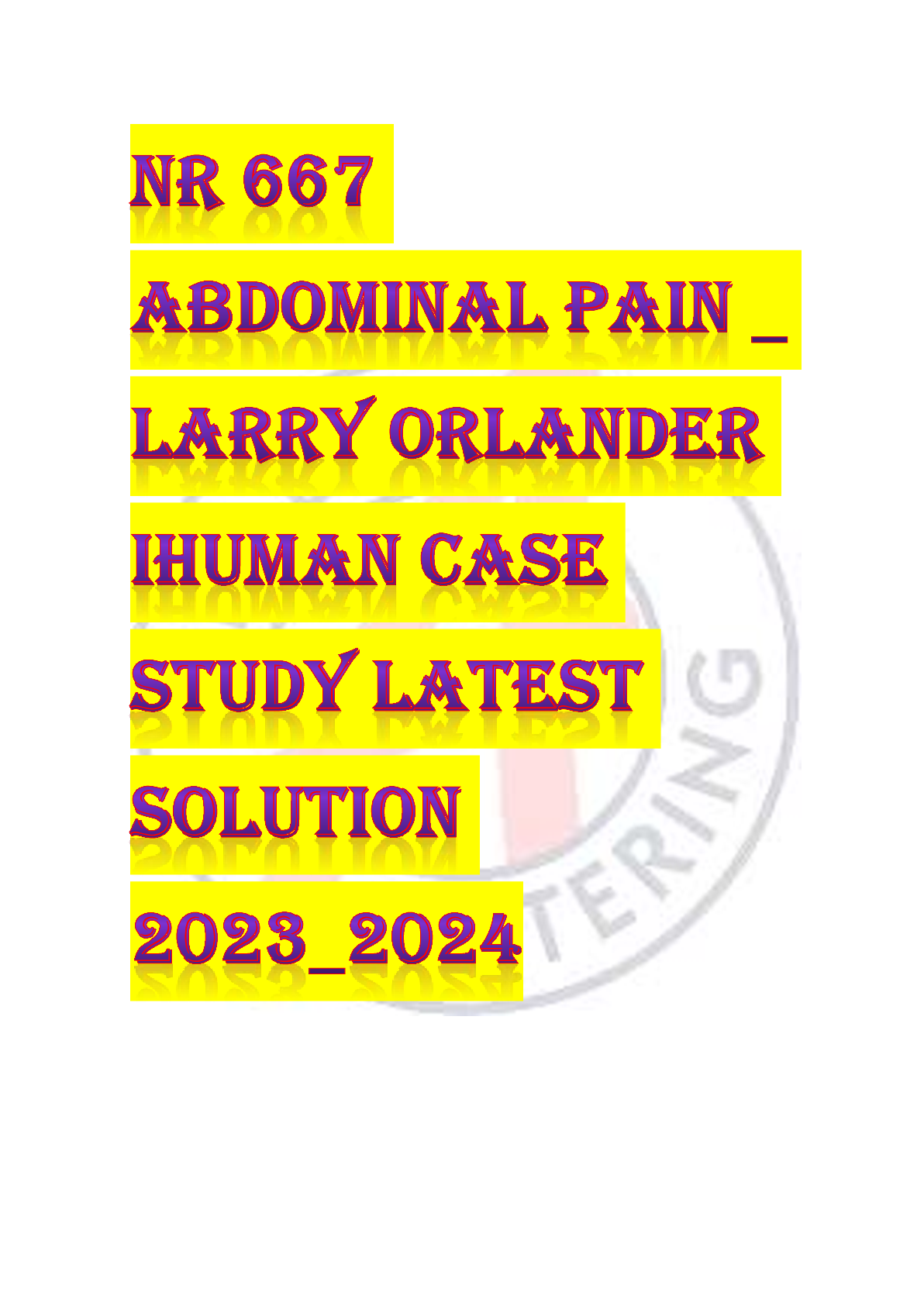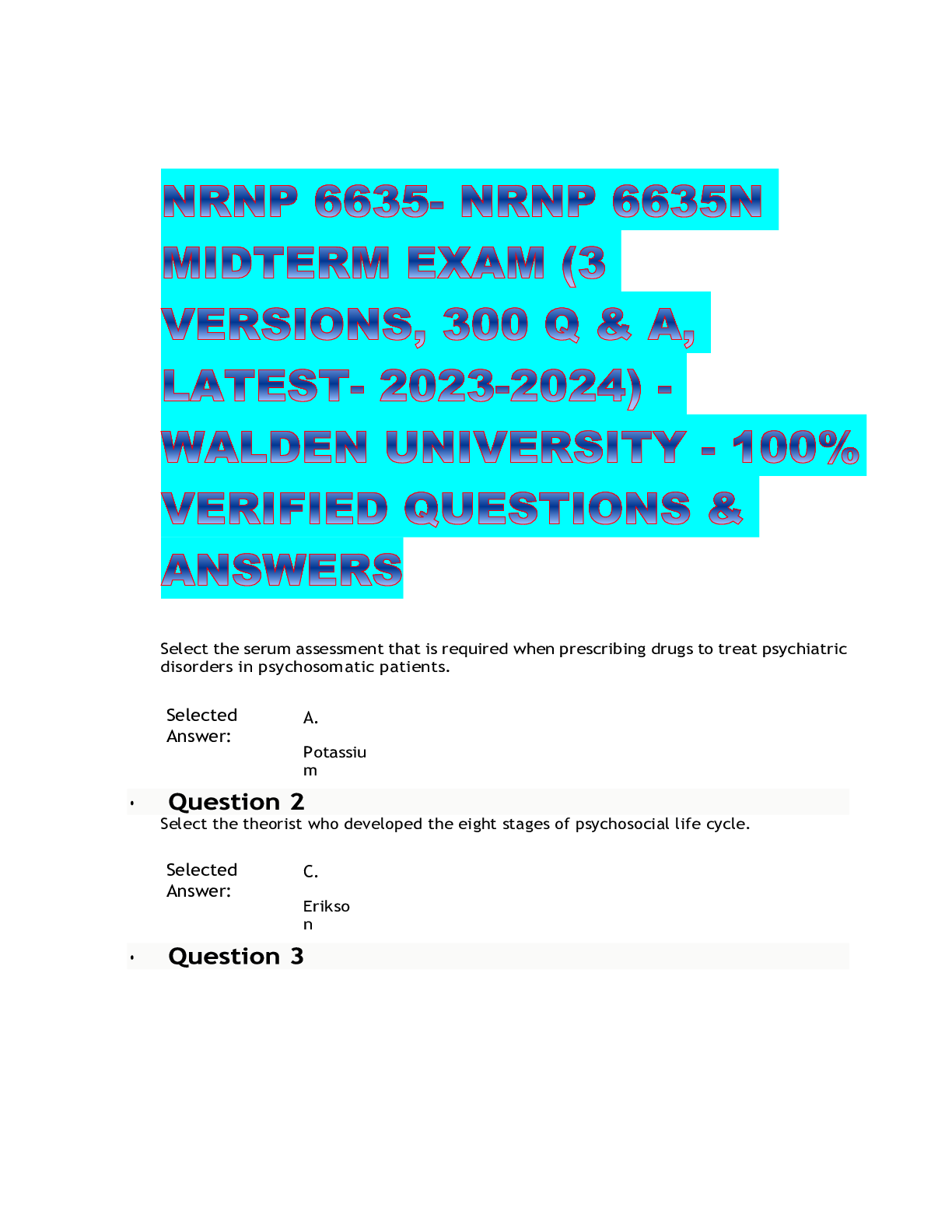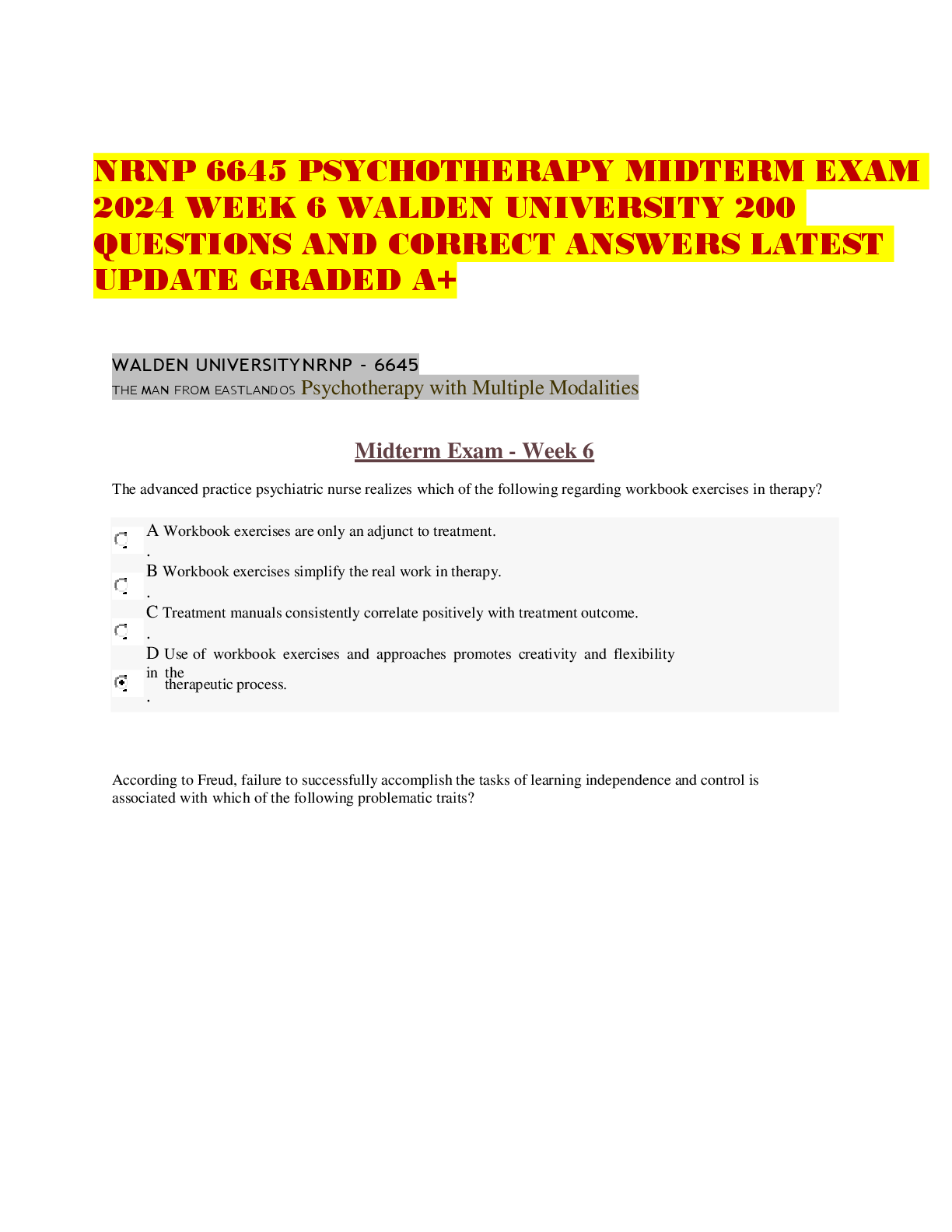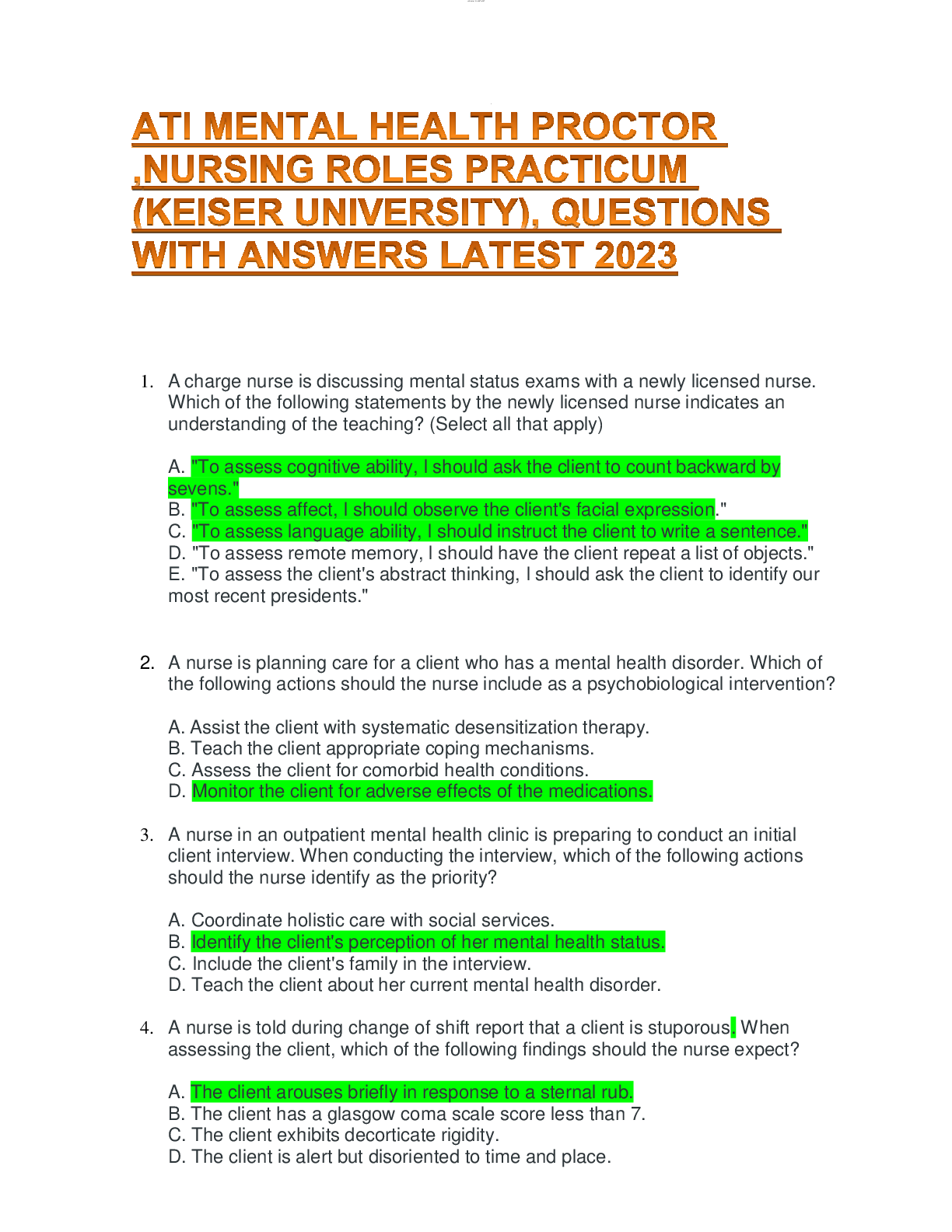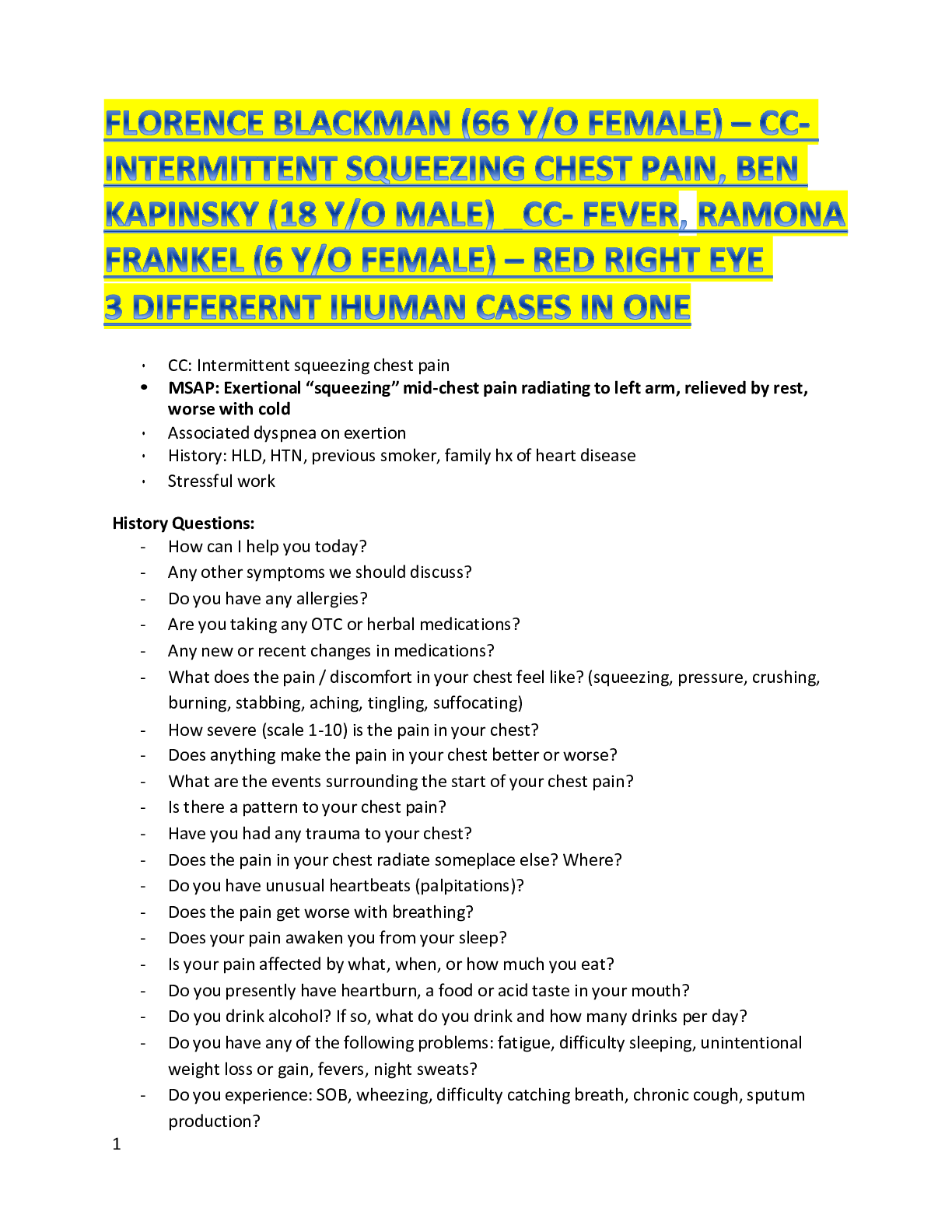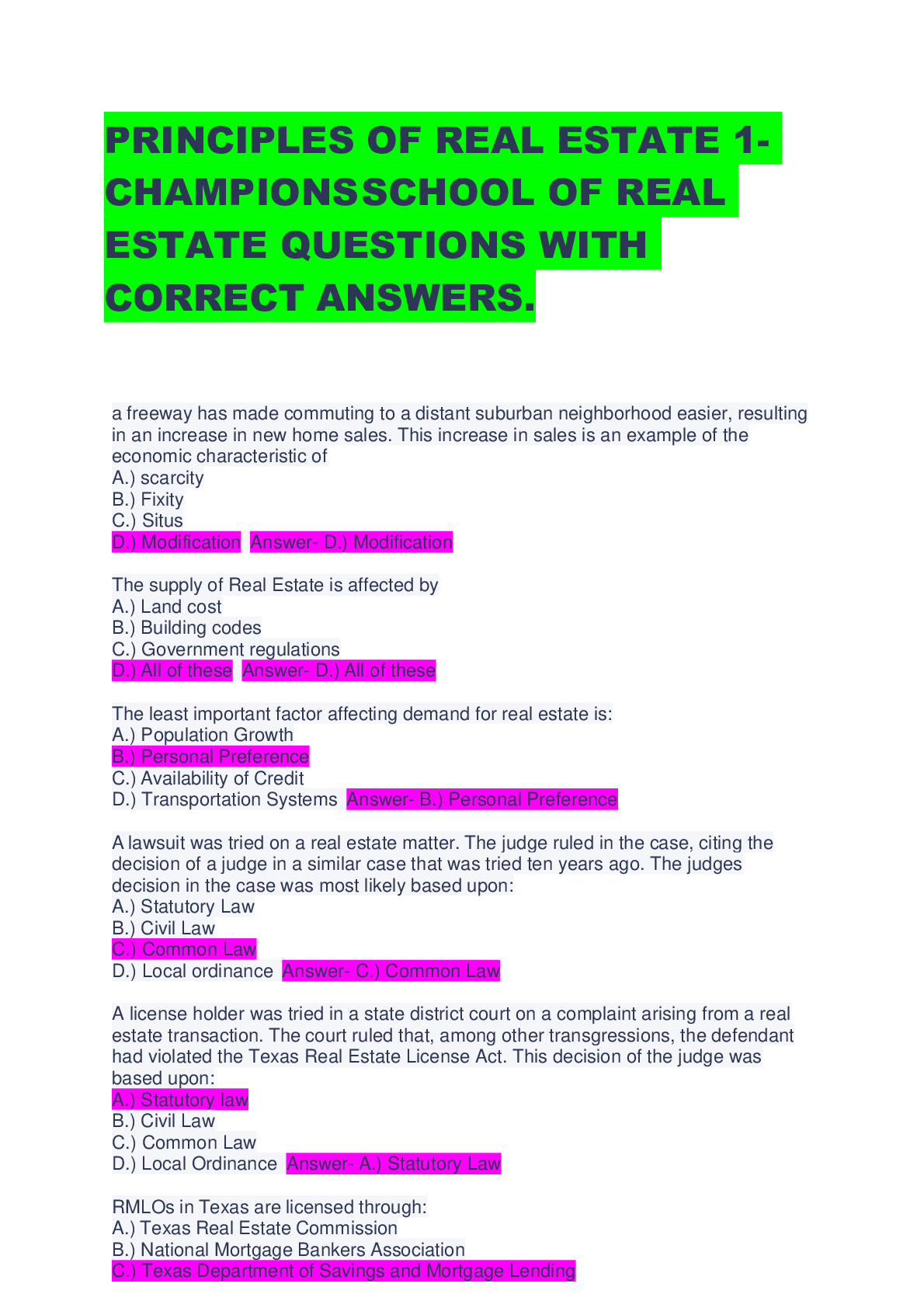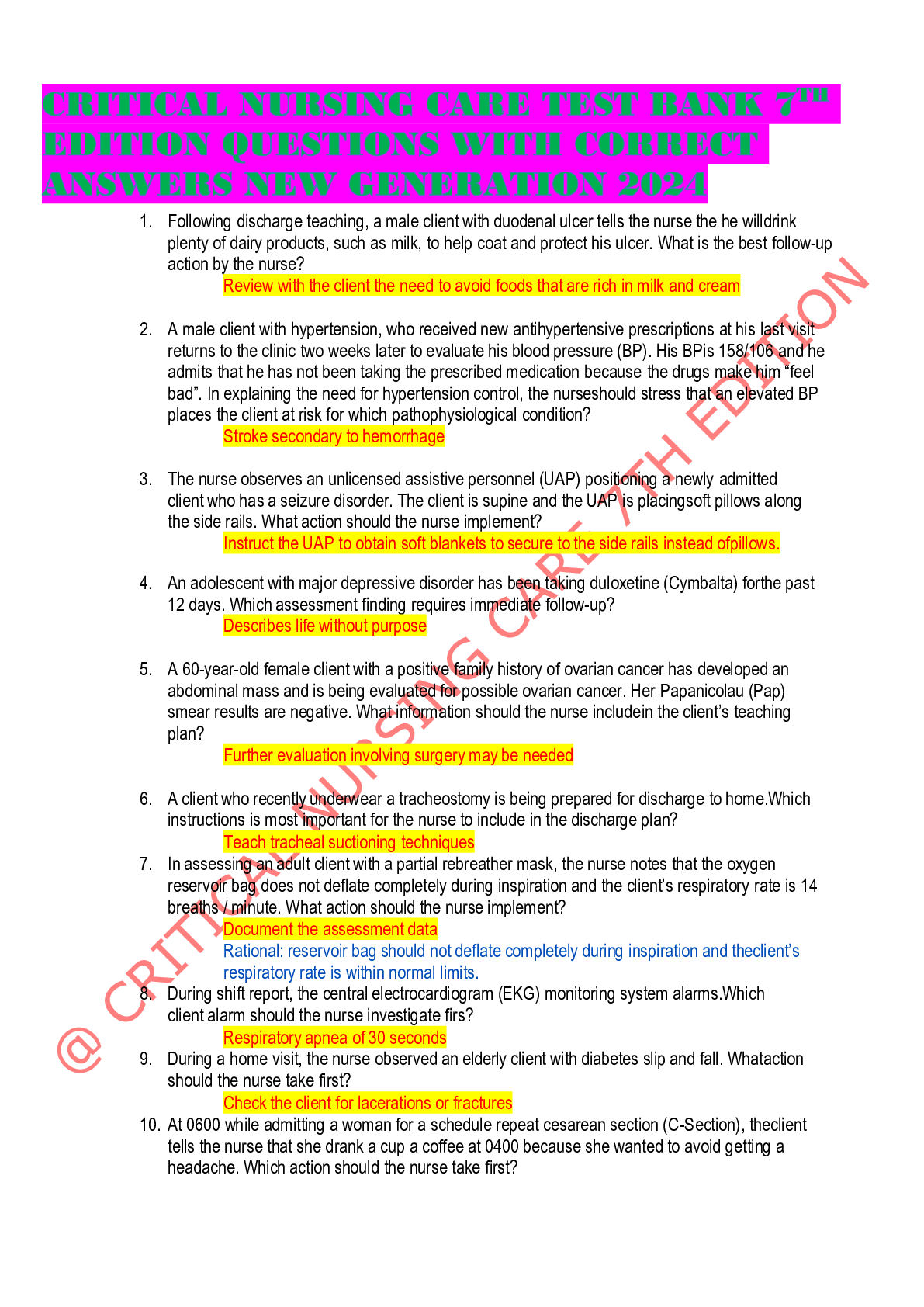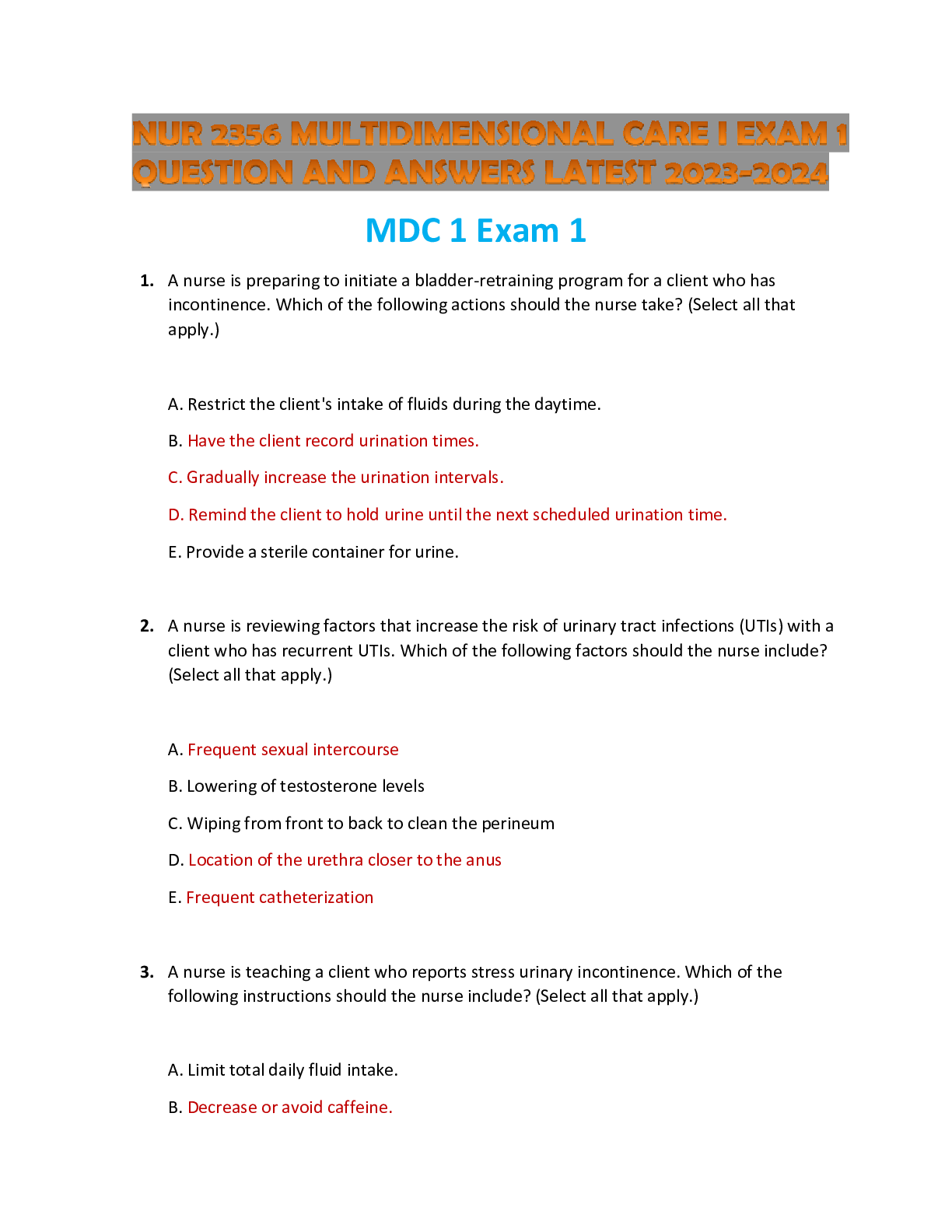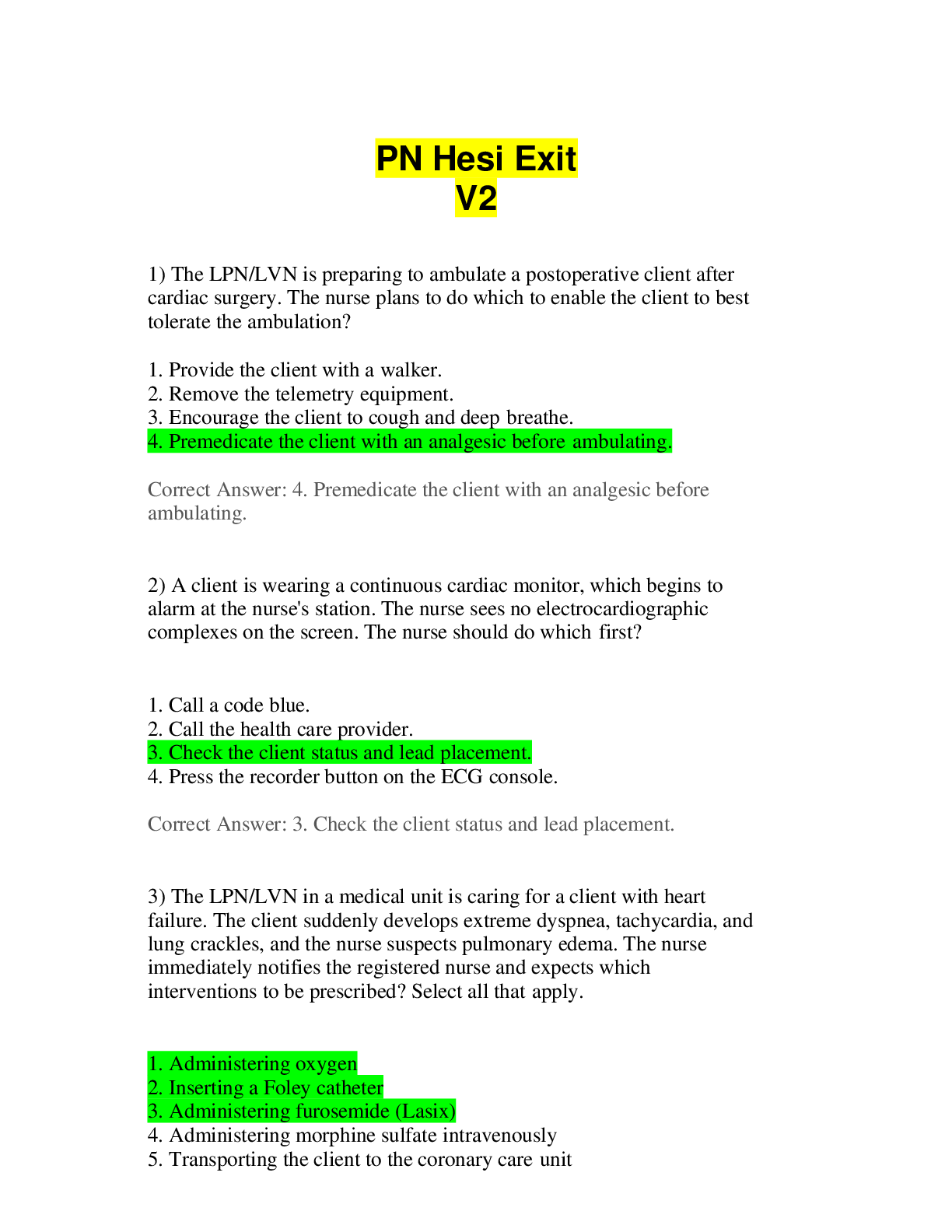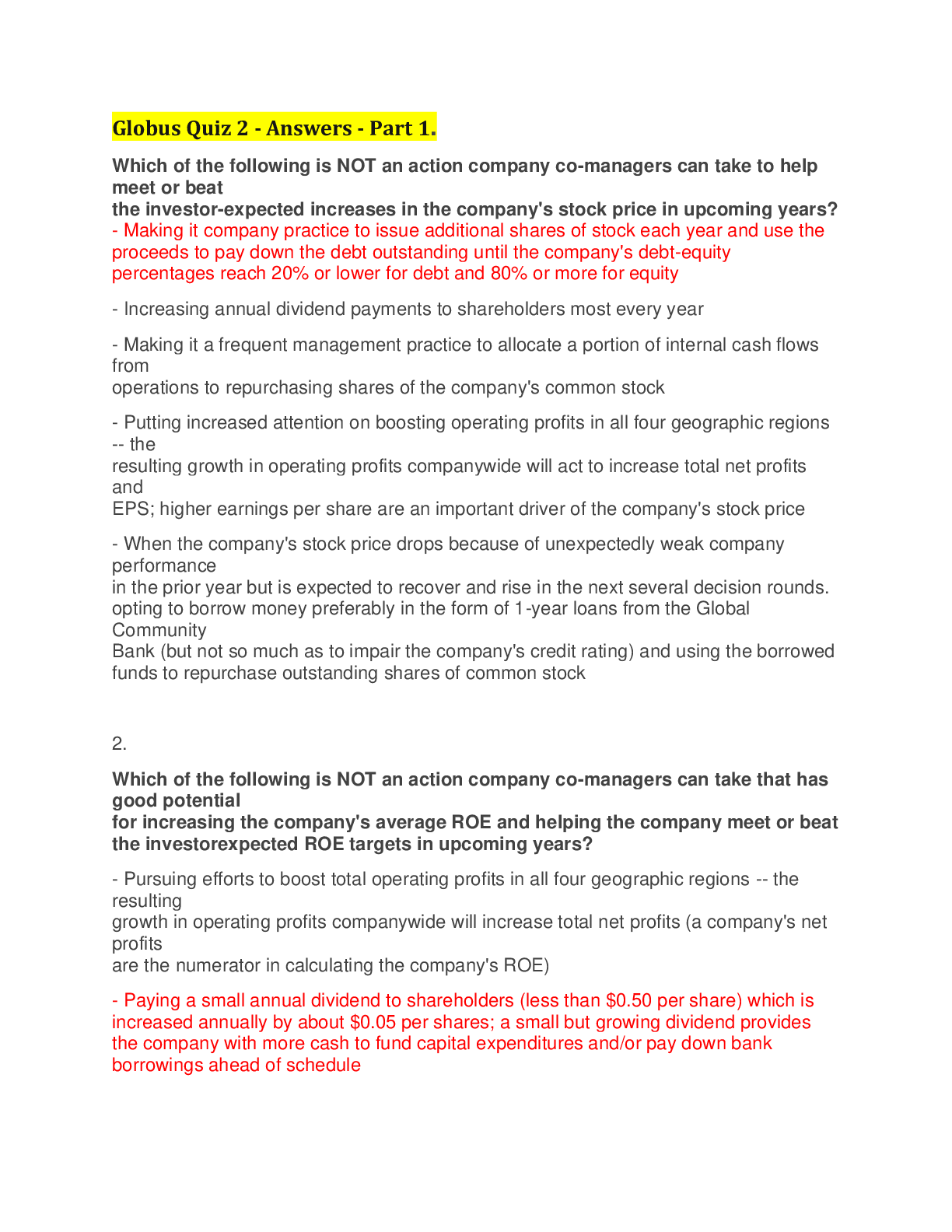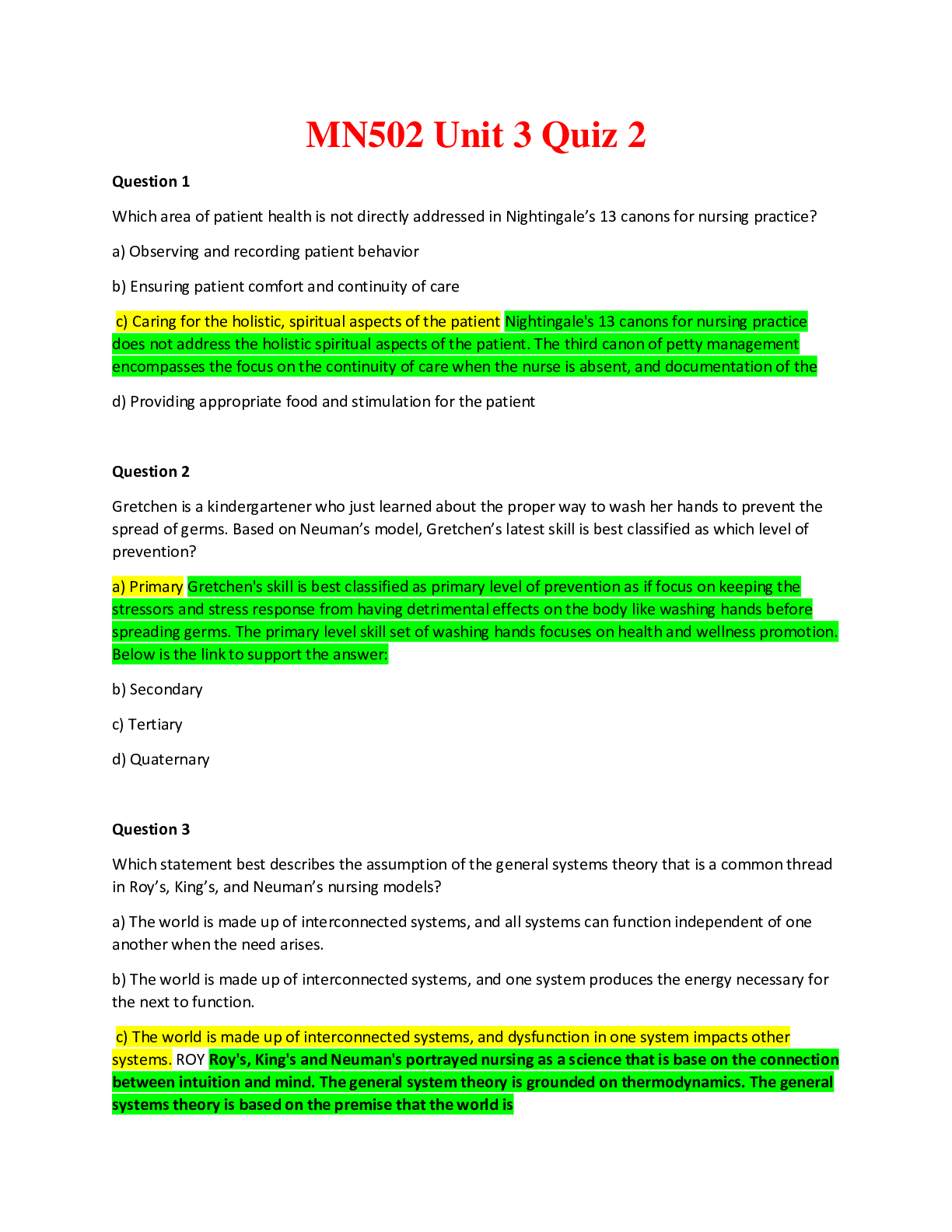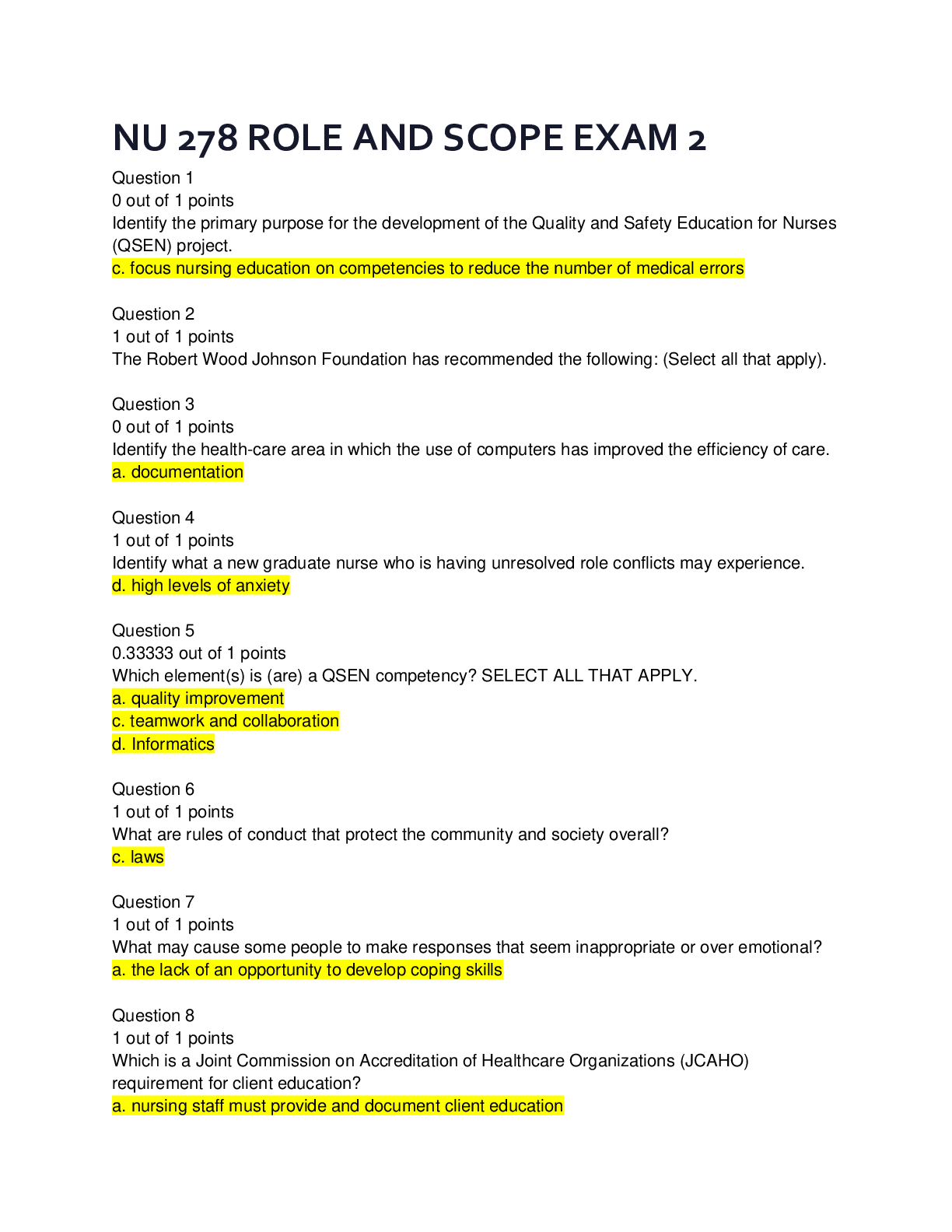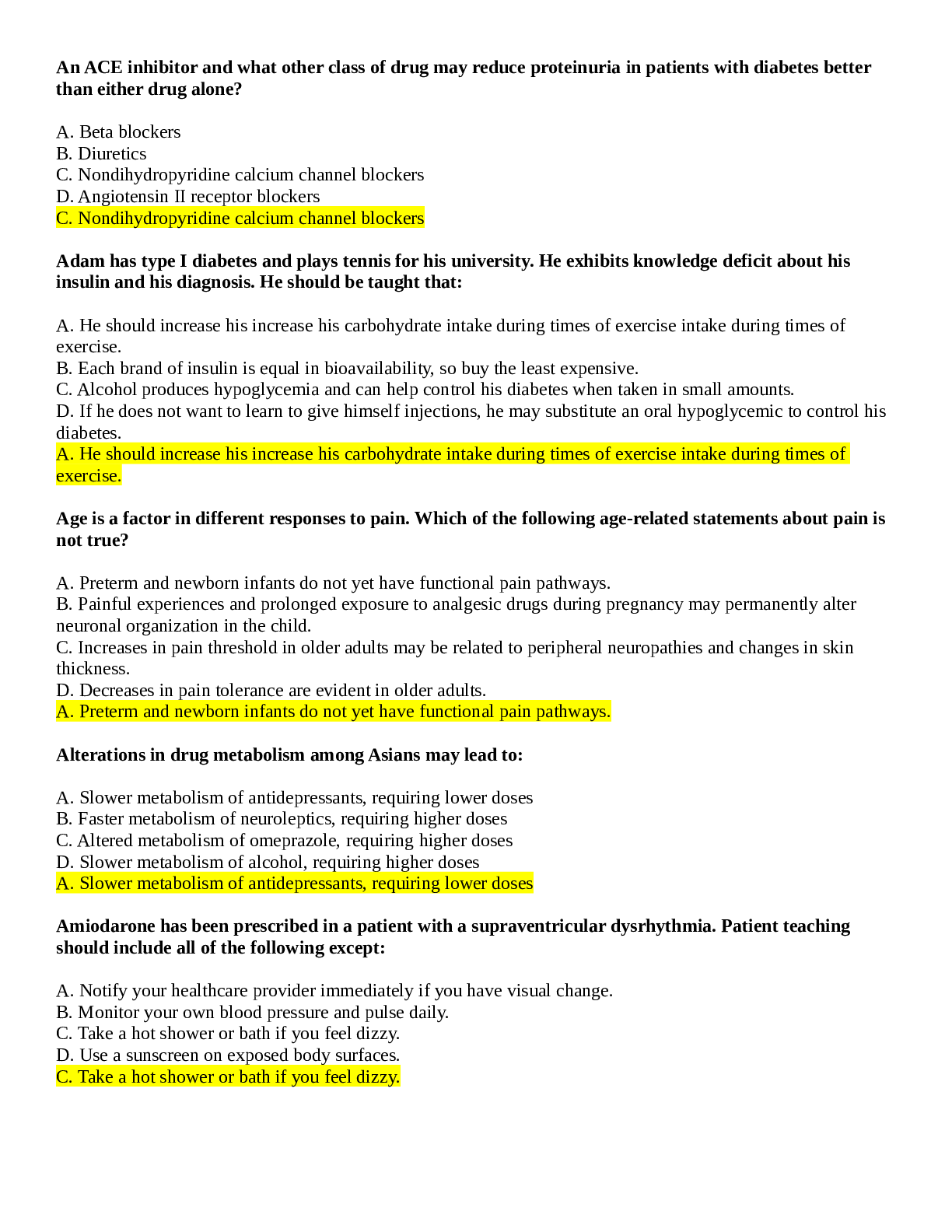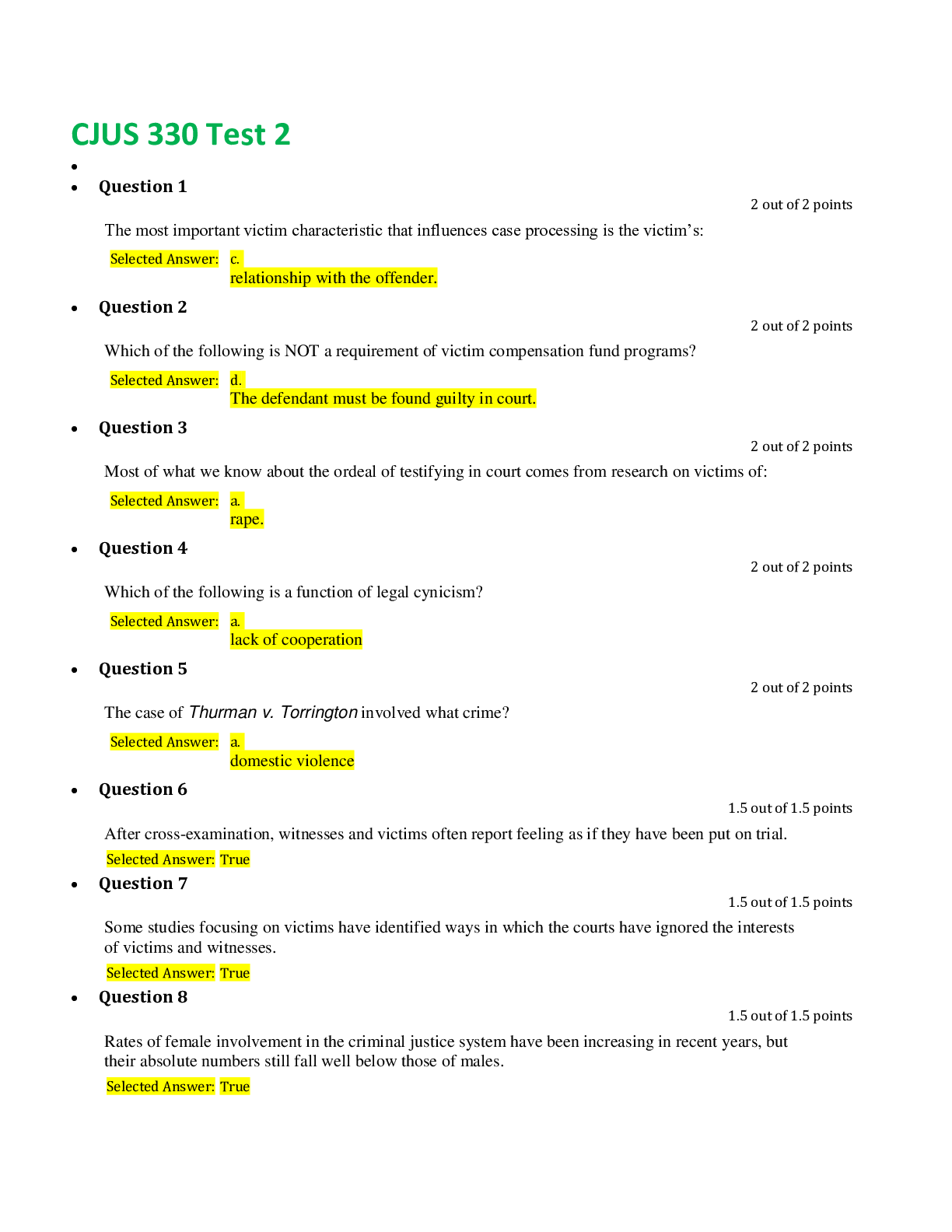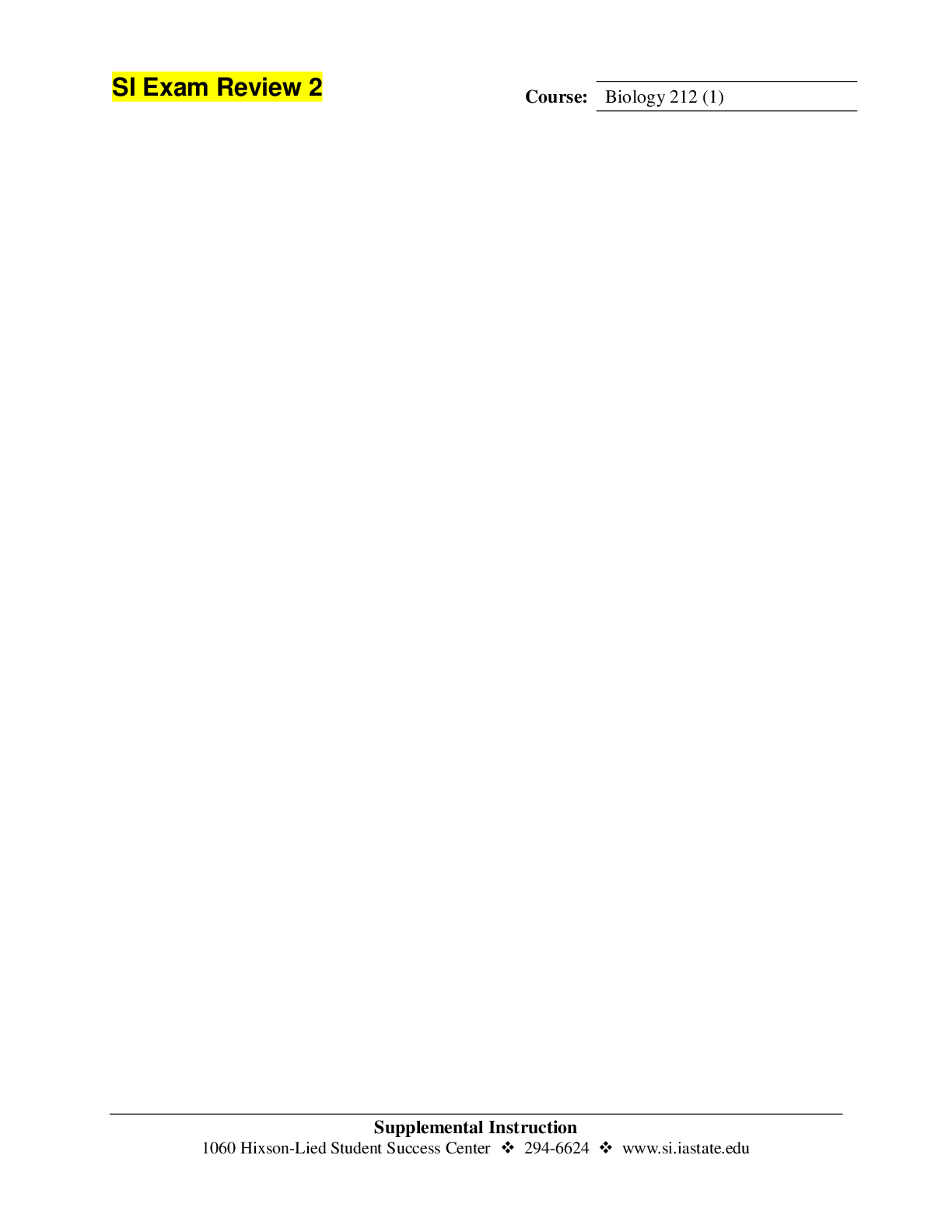NURS 2755 MDC IV EXAM 2 QUESTIONS AND ANSWERS LATEST 2023
Document Content and Description Below
NURS 2755 MDC IV EXAM 2 QUESTIONS AND ANSWERS LATEST 2023 1. Ergotamine tartrate medications are beneficial in migraine headaches because they a. Dilate cerebral blood vessels *b. Constrict cere... bral blood vessels c. Reduce neurotransmission of pain impulses d. Enhance endorphin secretion 2. A patient, age 27, has been admitted to the neurological department because of seizures of unknown cause. The nurse should take precautions by placing the patient in a. protective restraints *b. being certain padded side rails are present c. suggesting that the family monitor the patient d. placing the patient with one-on-one nursing service 3. Before the patient undergoes computed tomographic (CT) scanning with a contrast medium, the nurse should *a. verify that the patient is not allergic to seafood or iodine b. explain that the patient will have to change position frequently during the procedure c. maintain a safe distance from the patient to reduce the exposure to radiation d. verify that the patient has no metal objects such as an implant or a pacemaker 4. A patient, age 69, is being evaluated by a neurologist for signs of muscle rigidity, masklike face (area from forehead to chin), and propulsive gait. These signs are often characteristic of a. Multiple sclerosis *b. Parkinsonism c. Alzheimer’s disease d. Epilepsy 5. Which food may worsen headaches? Select all that apply. *a. Yogurt *b. Caffeine c. Beef d. Pears *e. Marinated food f. Milk 6. A method of reducing a person’s risk of becoming infected with the West Nile virus would be to a. Wear shorts and short-sleeve shirts b. Apply baby lotion to all extremities *c. Apply insect repellent that contain DEET d. Apply flea and tick repellent 7. A patient, age 23, has a comminuted fracture of T6-T7. She has a spinal cord injury resulting in paraplegia. She manifests signs and symptoms of autonomic dysreflexia, which is frequently triggered by *a. Bladder distention b. Nausea c. Food allergies d. Electrolyte imbalance 8. The nurse is caring for a client diagnosed with Alzheimer’s disease. Which nursing tasks should not be delegated to the unlicensed assistive personnel (UAP)? Select all that apply. *a. Check the client’s skin under the restraints *b. Administer the client’s antipsychotic medication c. Perform the client’s morning hygiene care d. Ambulate the client to the bathroom e. Obtain the client’s routine vital signs 9. A patient has a history of tonic-clonic seizures. She was admitted to the neurological unit after having had three tonic-clonic seizures in the past 2 days. Her husband reported that she had been sleeping for long periods after each seizure. The nurse explains to him that this rest period after a tonic-clonic seizure is called a a. convalescent period b. post-status epilepticus period c. post-tonic-clonic period *d. postictal period [Show More]
Last updated: 2 years ago
Preview 1 out of 6 pages
Buy this document to get the full access instantly
Instant Download Access after purchase
Buy NowInstant download
We Accept:

Reviews( 0 )
$15.50
Can't find what you want? Try our AI powered Search
Document information
Connected school, study & course
About the document
Uploaded On
Jan 12, 2023
Number of pages
6
Written in
Additional information
This document has been written for:
Uploaded
Jan 12, 2023
Downloads
0
Views
51

